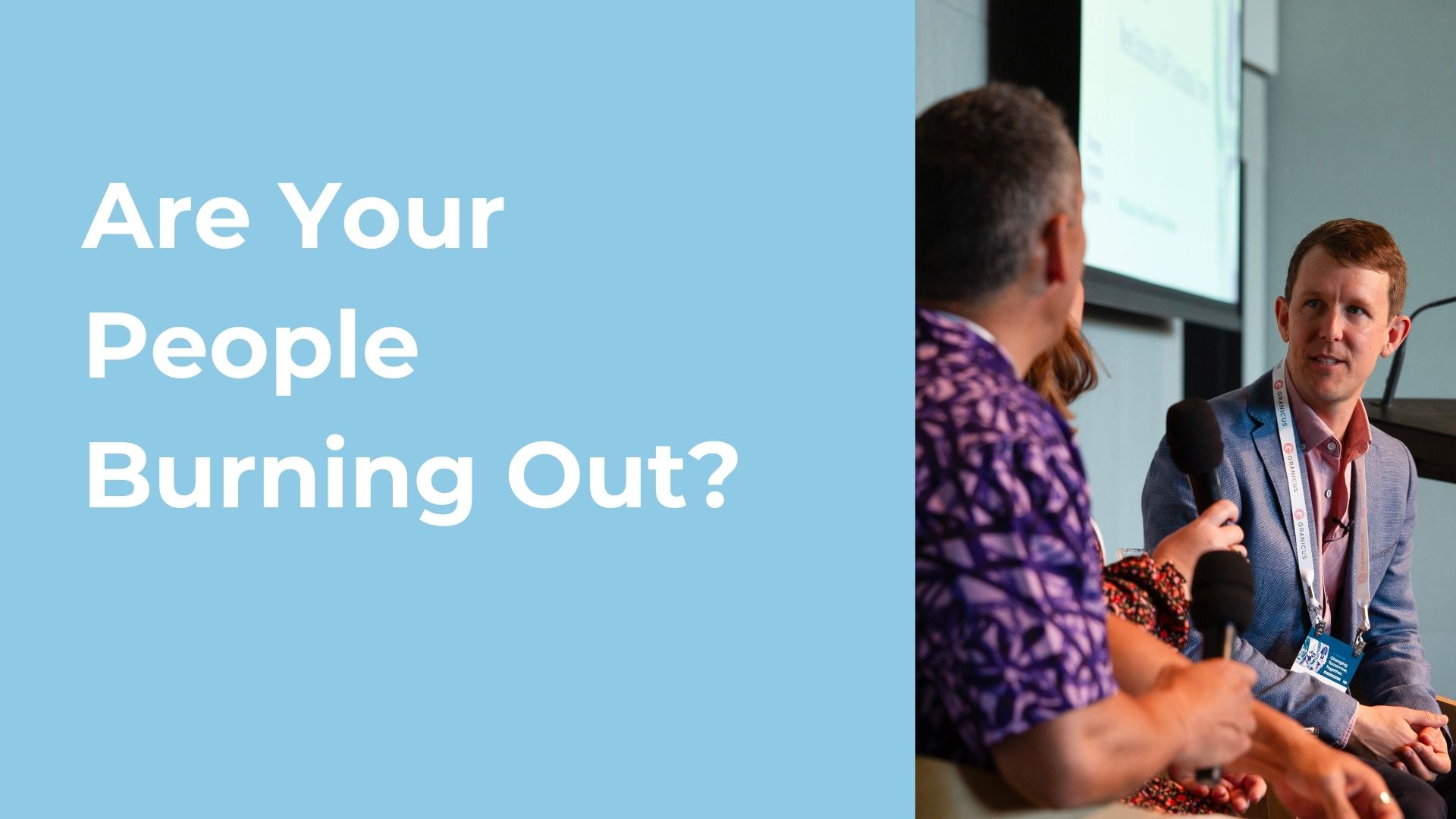😔 Are your people burning out?

Are your people doing it tough this week?
I've had lots of discovery calls recently for my coaching programme.
Many of you are feeling the pressure right now.
A local government manager told me about the simmering tension in his team. Half are awaiting their council's Long Term Plan to discover whether their jobs will remain.
The pressure of KPIs was getting to the leader in a recuiting firm. "It's like the walls are closing in," she said. "Gross profit is our bottom line and it's going down. People react differently to pressure and it's creating stress."
A partner in an accounting firm spoke about the frantic pace of work. "Recessions are good for profit but hard for our people," he admitted. They're drowning in work, as businesses cry out to be rescued from their choppy financial waters.
All of them talked about feeling the need to do more for their people.
"I want to support," one told me, "but I don't want to be nosy. Where's the line?"
😔 Are you burning out?
Take yourself back to May 2020. We're in the middle of a global pandemic - locked into our homes, trying to make life work.
What a time that was.
Back then, Professor Jarrod Haar did the first of his wellbeing@work surveys.
He found that 1 in 6 people were at a high-risk of burnout back in 2020.
Burnout is no joke. It's more than just being tired and grumpy. Much more than disliking your job.
Imagine fighting to get out of bed in the morning. Forgetting people's names. Struggling to concentrate on basic tasks at work. Everything feels beyond you when you're burning out.
But it's much, much, worse now than it was in the height of the lockdowns.
As of April 2024, 1 in 2 people are at a high risk of burnout.
That's a worrying high number. And it's not a typo.
Why? Professor Haar believes it's because:
(a) We're scared for our jobs
(b) We're lonely.
So what does this mean for your leadership?
I'm no expert on burnout, but I am an expert in engagement.
Engagement is about whether people feel valued at work.
People who feel valued add value. We can't expect people to be high-performers if they don't feel like they matter, are worried about their jobs and feel lonely.
Now, more than ever, we need you to lead with facilitation.
Bring people together to connect.
Ask great questions.
Guide people through a process. (Any process will do; just make sure you have one.)
And have the humility to listen to the answers as they emerge.